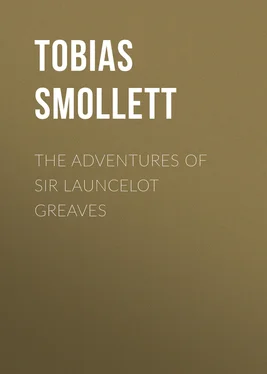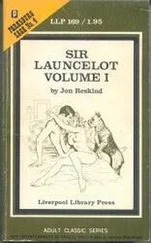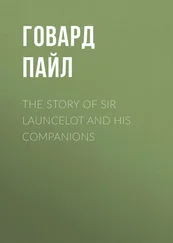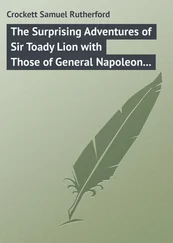Tobias Smollett - The Adventures of Sir Launcelot Greaves
Здесь есть возможность читать онлайн «Tobias Smollett - The Adventures of Sir Launcelot Greaves» — ознакомительный отрывок электронной книги совершенно бесплатно, а после прочтения отрывка купить полную версию. В некоторых случаях можно слушать аудио, скачать через торрент в формате fb2 и присутствует краткое содержание. Жанр: Прочие приключения, Прочие приключения, foreign_antique, foreign_prose, на английском языке. Описание произведения, (предисловие) а так же отзывы посетителей доступны на портале библиотеки ЛибКат.
- Название:The Adventures of Sir Launcelot Greaves
- Автор:
- Жанр:
- Год:неизвестен
- ISBN:нет данных
- Рейтинг книги:4 / 5. Голосов: 1
-
Избранное:Добавить в избранное
- Отзывы:
-
Ваша оценка:
- 80
- 1
- 2
- 3
- 4
- 5
The Adventures of Sir Launcelot Greaves: краткое содержание, описание и аннотация
Предлагаем к чтению аннотацию, описание, краткое содержание или предисловие (зависит от того, что написал сам автор книги «The Adventures of Sir Launcelot Greaves»). Если вы не нашли необходимую информацию о книге — напишите в комментариях, мы постараемся отыскать её.
The Adventures of Sir Launcelot Greaves — читать онлайн ознакомительный отрывок
Ниже представлен текст книги, разбитый по страницам. Система сохранения места последней прочитанной страницы, позволяет с удобством читать онлайн бесплатно книгу «The Adventures of Sir Launcelot Greaves», без необходимости каждый раз заново искать на чём Вы остановились. Поставьте закладку, и сможете в любой момент перейти на страницу, на которой закончили чтение.
Интервал:
Закладка:
Tobias Smollett
The Adventures of Sir Launcelot Greaves
INTRODUCTION
It was on the great northern road from York to London, about the beginning of the month of October, and the hour of eight in the evening, that four travellers were, by a violent shower of rain, driven for shelter into a little public-house on the side of the highway, distinguished by a sign which was said to exhibit the figure of a black lion. The kitchen, in which they assembled, was the only room for entertainment in the house, paved with red bricks, remarkably clean, furnished with three or four Windsor chairs, adorned with shining plates of pewter, and copper saucepans, nicely scoured, that even dazzled the eyes of the beholder; while a cheerful fire of sea-coal blazed in the chimney.
It would be hard to find a better beginning for a wholesome novel of English life, than these first two sentences in The Adventures of Sir Launcelot Greaves. They are full of comfort and promise. They promise that we shall get rapidly into the story; and so we do. They give us the hope, in which we are not to be disappointed, that we shall see a good deal of those English inns which to this day are delightful in reality, and which to generations of readers, have been delightful in fancy. Truly, English fiction, without its inns, were as much poorer as the English country, without these same hostelries, were less comfortable. For few things in the world has the so-called “Anglo-Saxon” race more reason to be grateful than for good old English inns. Finally there is a third promise in these opening sentences of Sir Launcelot Greaves. “The great northern road!” It was that over which the youthful Smollett made his way to London in 1739; it was that over which, less than nine years later, he sent us travelling in company with Random and Strap and the queer people whom they met on their way. And so there is the promise that Smollett, after his departure in Count Fathom from the field of personal experience which erstwhile he cultivated so successfully, has returned to see if the ground will yield him another rich harvest. Though it must be admitted that in Sir Launcelot Greaves his labours were but partially successful, yet the story possesses a good deal of the lively verisimilitude which Fathom lacked. The very first page, as we have seen, shows that its inns are going to be real. So, too, are most of its highway adventures, and also its portion of those prison scenes of which Smollett seems to have been so fond. As for the description of the parliamentary election, it is by no means the least graphic of its kind in the fiction of the last two centuries. The speech of Sir Valentine Quickset, the fox-hunting Tory candidate, is excellent, both for its brevity and for its simplicity. Any of his bumpkin audience could understand perfectly his principal points: that he spends his estate of “vive thousand clear” at home in old English hospitality; that he comes of pure old English stock; that he hates all foreigners, not excepting those from Hanover; and that if he is elected, he “will cross the ministry in everything, as in duty bound.”
In the characters, likewise, though less than in the scenes just spoken of, we recognise something of the old Smollett touch. True, it is not high praise to say of Miss Aurelia Darnel that she is more alive, or rather less lifeless, than Smollett’s heroines have been heretofore. Nor can we give great praise to the characterisation of Sir Launcelot. Yet if less substantial than Smollett’s roystering heroes, he is more distinct than de Melvil in Fathom, the only one of our author’s earlier young men, by the way, (with the possible exception of Godfrey Gauntlet) who can stand beside Greaves in never failing to be a gentleman. It is a pity, when Greaves’s character is so lovable, and save for his knight-errantry, so well conceived, that the image is not more distinct. Crowe is distinct enough, however, though not quite consistently drawn. There is justice in Scott’s objection [Tobias Smollett in Biographical and Critical Notices of Eminent Novelists] that nothing in the seaman’s “life . . . renders it at all possible that he should have caught” the baronet’s Quixotism. Otherwise, so far from finding fault with the old sailor, we are pleased to see Smollett returning in him to a favourite type. It might be thought that he would have exhausted the possibilities of this type in Bowling and Trunnion and Pipes and Hatchway. In point of fact, Crowe is by no means the equal of the first two of these. And yet, with his heart in the right place, and his application of sea terms to land objects, Captain Samuel Crowe has a good deal of the rough charm of his prototypes. Still more distinct, and among Smollett’s personages a more novel figure, is the Captain’s nephew, the dapper, verbose, tender-hearted lawyer, Tom Clarke. Apart from the inevitable Smollett exaggeration, a better portrait of a softish young attorney could hardly be painted. Nor, in enumerating the characters of Sir Launcelot Greaves who fix themselves in a reader’s memory, should Tom’s inamorata, Dolly, be forgotten, or the malicious Ferret, or that precious pair, Justice and Mrs. Gobble, or the Knight’s squire, Timothy Crabshaw, or that very individual horse, Gilbert, whose lot is to be one moment caressed, and the next, cursed for a “hard-hearted, unchristian tuoad.”
Barring the Gobbles, all these characters are important in the book from first to last. Sir Launcelot Greaves, then, is significant among Smollett’s novels, as indicating a reliance upon the personages for interest quite as much as upon the adventures. If the author failed in a similar intention in Fathom, it was not through lack of clearly conceived characters, but through failure to make them flesh and blood. In that book, however, he put the adventures together more skilfully than in Sir Launcelot Greaves, the plot of which is not only rather meagre but also far-fetched. There seems to be no adequate reason for the baronet’s whim of becoming an English Don Quixote of the eighteenth century, except the chance it gave Smollett for imitating Cervantes. He was evidently hampered from the start by the consciousness that at best the success of such imitation would be doubtful. Probably he expresses his own misgivings when he makes Ferret exclaim to the hero: “What! . . . you set up for a modern Don Quixote? The scheme is rather too stale and extravagant. What was a . . . well-timed satire in Spain near two hundred years ago, will . . . appear . . . insipid and absurd . . . at this time of day, in a country like England.” Whether from the author’s half-heartedness or from some other cause, there is no denying that the Quixotism in Sir Launcelot Greaves is flat. It is a drawback to the book rather than an aid. The plot could have developed itself just as well, the high-minded young baronet might have had just as entertaining adventures, without his imitation of the fine old Spanish Don.
I have remarked on the old Smollett touch in Sir Launcelot Greaves,—the individual touch of which we are continually sensible in Roderick Random and Peregrine Pickle, but seldom in Count Fathom. With it is a new Smollett touch, indicative of a kindlier feeling towards the world. It is commonly said that the only one of the writer’s novels which contains a sufficient amount of charity and sweetness is Humphry Clinker. The statement is not quite true. Greaves is not so strikingly amiable as Smollett’s masterpiece only because it is not so striking in any of its excellences; their lines are always a little blurred. Still, it shows that ten years before Clinker, Smollett had learned to combine the contradictory elements of life in something like their right proportions. If obscenity and ferocity are found in his fourth novel, they are no longer found in a disproportionate degree.
Читать дальшеИнтервал:
Закладка:
Похожие книги на «The Adventures of Sir Launcelot Greaves»
Представляем Вашему вниманию похожие книги на «The Adventures of Sir Launcelot Greaves» списком для выбора. Мы отобрали схожую по названию и смыслу литературу в надежде предоставить читателям больше вариантов отыскать новые, интересные, ещё непрочитанные произведения.
Обсуждение, отзывы о книге «The Adventures of Sir Launcelot Greaves» и просто собственные мнения читателей. Оставьте ваши комментарии, напишите, что Вы думаете о произведении, его смысле или главных героях. Укажите что конкретно понравилось, а что нет, и почему Вы так считаете.












